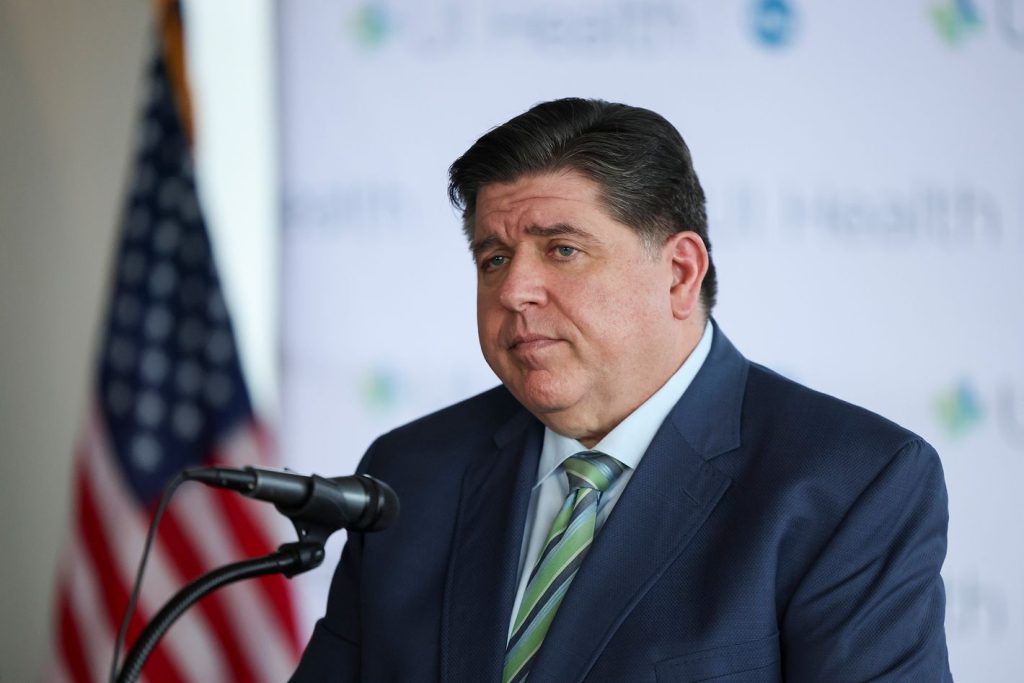Photo: Eileen T. Meslar/Chicago Tribune/Getty Images
Four months after his inauguration, Donald Trump’s second administration is facing several trials and troubles that could determine whether it’s a success or a failure. There’s the One Big Beautiful Bill Act (the official name, believe it or not), the House version of the budget-reconciliation bill meant to implement Trump’s legislative agenda, which is struggling in Congress. There are the legal challenges to a vast number of Trump power grabs. And there’s the anxious waiting game to see if the president’s tariff program will goose consumer prices, shake markets, and possibly even trigger a recession.
With so many fraught matters up in the air, you have to figure that Republicans were thrilled at the chance to shift the focus to Joe Biden.
This opportunity emerged from two sources. The first was the intense promotion of a classic Washington insider tell-all book, Jake Tapper and Alex Thompson’s Original Sin: President Biden’s Decline, Its Cover-Up and His Disastrous Decision to Run Again. The second was the sad announcement that the former president has been diagnosed with metastatic prostate cancer. Unanswered questions about the discovery of Biden’s cancer, and whether it could have or should have been disclosed to the public earlier, led Republicans to ask (sometimes after pro forma expressions of sympathy) if there had been some sort of “cover-up.”
The question of Biden’s fitness to finish his first term as president and run for a second is obviously legitimate. Democrats are as interested in this issue as Republicans; they spent many months debating how big a problem Biden’s age might become, and then how to cope when his health issues became manifest during a crucial presidential debate. Precisely for that reason, the idea that Biden’s condition was some sort of closely held secret that required a vast conspiracy to hide is a bit absurd, as Mark Leibovich noted in The Atlantic:
It’s pretty much impossible to “cover up” for something that is hiding in plain sight. Democrats could trot out as many White House officials as they wanted to claim I was with the president just this morning, and he was sharp as a tack and running circles around staffers less than half his age. But whenever Biden was allowed to go out in public—a rarity, which itself was a red flag—the public’s preexisting consensus about his infirmity was only reinforced.
It’s kind of like Trump’s unhinged social-media posts. I don’t know the exact process behind this habit or whether anyone in his circle tries to restrain him, but it cannot be covered up.
Yet excited journalists, presumably egged on by Republican politicians and maybe even some Democrats who want pots stirred, are already speculating that “the Biden cover-up” could loom over the 2028 presidential election. You know, the election that will happen over three years from now, which in Trump years is like three decades. Here’s how The Hill put it:
Former President Biden’s cancer diagnosis has done little to quell concerns about his decision to run for reelection, and many in the party acknowledge the issue is likely to dog them as they look toward 2028. …
While the news of Biden’s illness was met with an outpouring of condolences from both sides of the aisle, it also sparked new questions surrounding the Biden team’s handling of his health and underscored the degree to which scrutiny over the former president will persist through the next White House election.
“I think Democrats, whoever they are, need to be ready for this question,” Democratic strategist Maria Cardona said of attention on Biden’s 2024 decisions.
An Associated Press item even predicted that the issue would “become a litmus test for the next leaders in his party.”
If that turns out to be true, then Democrats are even more deeply incompetent than their harshest critics would contend.
Assuming the beginning of Trump 2.0 is any indication of what is to come, assessments of the 47th president and his legacy are going to dominate the next midterm elections and then the next presidential cycle as never before, and that’s saying a lot. Keep in mind that in 2024, millions of persuadable voters had dismissed as irrelevant or as ancient news the fact that one of the two major-party candidates had spoken provocatively about a “stolen election” to a mob that then sacked the U.S. Capitol. In 2028, they are not going to be dwelling on what Democrats knew or didn’t know in 2024 about Biden’s mental acuity or possible cancer diagnosis.
Some 2028 Democratic presidential candidates will likely hail from far-away state capitals where they were not in a position to closely monitor the president’s ability to remember names or work into the late evening. And even Democratic members of Congress or Cabinet members had at most episodic interactions with the 46th president. Unless some member of Biden’s family or someone from the inner core of his White House staff runs for president, candidates will likely be able to brush off questions about his mental state, much as Pete Buttigieg did this week by saying Biden was no worse in private than in public, as far as he knew.
This doesn’t mean that Biden’s physical and mental condition and allegations of a “cover-up” won’t live on as urgent topics in MAGA-land. It’s like the various scandals real and imagined that hounded Bill and Hillary Clinton; assorted contrived conspiracy theories involving Barack Obama’s place of birth, upbringing, and teleprompter use; and the invidious narratives built up on social media and book-length “exposés” about other devil figures in the conservative imagination, from George Soros to Nancy Pelosi to Kamala Harris. The Biden “cover-up” will always serve as Republican porn, a bad-faith question to fire at Democrats when nothing else is available. But if swing voters in 2028 are still thinking about it, that means Democrats will have done a terrible job of giving them something else to think about.

